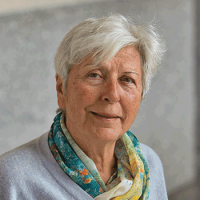Book Launch: “Go Tell the Crocodiles: Chasing Prosperity in Mozambique”
On March 22, 2018, the Wilson Center hosted Mr. Rowan Moore Gerety, a former Fulbright Scholar in Mozambique and reporter based in Miami, Florida, for a discussion of his first book Go Tell the Crocodiles: Chasing Prosperity in Mozambique. He was joined by Dr. Marina Ottaway, a Middle East Fellow at the Wilson Center Middle East Program who acted as a discussant. Ms. Hannah Beckett, Program Associate at the Wilson Center Africa Program, moderated the event.
Mr. Rowan Gerety started the discussion by contextualizing the current social, political, and economic fabric of the country with brief historical overview of Mozambique. He emphasized the significance of the 2016 debt crisis as well as the “shadow war” that occurred from 2013-2016 between the government and opposition. Mr. Gerety recounted his experiences in Mozambique and gave the audience insight into his interactions with the individuals that readers encounter in his book. The examples he provided shed light on the informal economy of Mozambique and how it is divorced from the formal economy. He mentioned the importance of agribusiness and mining in the rural areas, and the contributions of the aluminum industry to Mozambique’s economy. The lack of a strong supply chain to support local industries has prevented innovative Mozambicans from gaining access to affordable capital for production. For this reason, the rural economy faces challenges when trying to integrate into the formal economy. The vignettes he provided of individuals in the book, such as an entrepreneurial boy named Bento, highlighted the resilience of Mozambicans in navigating a country with much work ahead of it to consolidate peace, strengthen institutions, and spread development to the populace.
Dr. Marina Ottaway remarked how the individuals and stories in the book show the interface between a poor country and globalized world, and how growth has not translated to broad improvement of life for average Mozambicans. She discussed the importance of empowering members of the informal economy through infrastructure development, which could provide a platform for Mozambicans to be more engaged in the larger economy. Dr. Ottaway also expounded on the nature of governance in Mozambique, and the power dynamic of the ruling Mozambique Liberation Front (FRELIMO). She noted the difficulties of forming new political parties, as well as the larger tendency for liberation parties to remain in power long after liberation movements have ended.
During the question and answer period, Mr. Gerety went on to highlight the importance of providing universal access to education, as some youth lack access due to economic and geographic challenges. He urged international partners to help facilitate access to services. He also responded to comments about the decentralization agreement between FRELIMO and the main opposition party, the Mozambican National Resistance (RENAMO), and stated that he was optimistic about the future of politics in Mozambique. The current President, Filipe Nyusi, is of a relatively younger generation than that of previous leaders, and this change of pattern has already shown signs of inclusive and conciliatory governance.
Speakers

Former Senior Research Associate and Head of the Middle East Program, Carnegie Endowment for International Peace
Introduction

Hosted By

Africa Program
The Africa Program works to address the most critical issues facing Africa and US-Africa relations, build mutually beneficial US-Africa relations, and enhance knowledge and understanding about Africa in the United States. The Program achieves its mission through in-depth research and analyses, public discussion, working groups, and briefings that bring together policymakers, practitioners, and subject matter experts to analyze and offer practical options for tackling key challenges in Africa and in US-Africa relations. Read more
